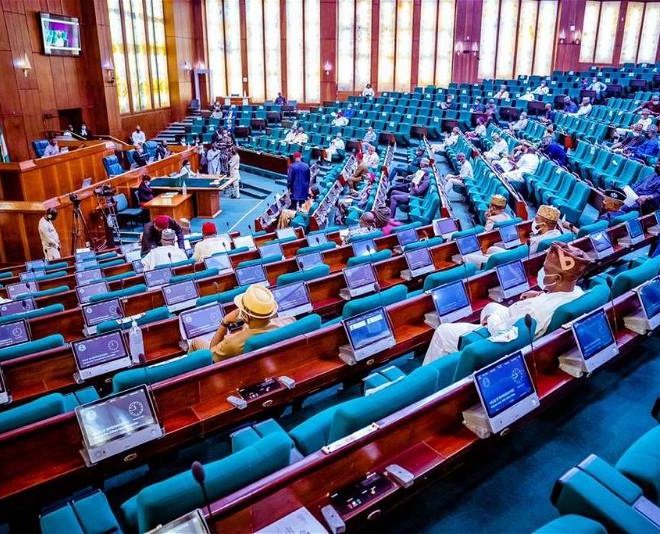The 2024 Hajj exercise, a significant religious pilgrimage for Muslims, was marred by controversy and mismanagement in Nigeria, leading to a House of Representatives investigation into the National Hajj Commission of Nigeria (NAHCON). The investigation, prompted by public outcry over a substantial government subsidy amid economic hardship, revealed a series of failings by NAHCON, from financial irregularities to logistical shortcomings and a lack of transparency that negatively impacted the experience of Nigerian pilgrims. The committee’s report, obtained by The PUNCH, painted a picture of an organization struggling with its responsibilities, leading to calls for significant reforms.
One of the most prominent issues highlighted in the report was the discrepancy between the substantial fees paid by pilgrims, as high as N9 million, and the quality of services received. Despite the hefty price tag and the N90 billion government subsidy, pilgrims, particularly those in Mina and Arafat, faced inadequate accommodation and overcrowding. The situation was further complicated by a change in Saudi Arabian Hajj policy, which prevented upgrades through the e-track platform. This change disproportionately affected high-profile pilgrims, such as governors and traditional rulers, who had expected premium accommodations befitting their status. The committee discovered a systemic failure to provide value for money, with many pilgrims who paid premium rates for accommodation receiving substandard facilities. This disconnect between cost and quality fueled dissatisfaction among pilgrims and raised questions about NAHCON’s financial management practices.
The relationship between NAHCON and licensed tour operators was another area of concern identified by the committee. A lack of communication, mutual distrust, and perceived inconsistencies in NAHCON’s fee structure created significant friction. Tour operators complained about discrepancies in charges levied on private operators compared to those imposed on state-sponsored pilgrims, creating an uneven playing field. The exclusion of tour operators from key policy decisions further exacerbated the strained relationship. This lack of collaboration ultimately hindered smooth operations, resulting in service failures that directly impacted the pilgrims’ experience. The committee stressed the importance of a collaborative approach between NAHCON and tour operators to ensure a smoother and more efficient Hajj process in the future.
Financial mismanagement within NAHCON emerged as a central theme in the investigation. The committee raised concerns about the lack of transparency surrounding the N90 billion federal subsidy. While the subsidy was intended to alleviate the financial burden on pilgrims, the distribution process lacked clarity, with no clear criteria for how the funds were allocated. This raised suspicions that some pilgrims benefited disproportionately while others received little or no financial relief. Further adding to the financial concerns, allegations of mismanagement within NAHCON contributed to the dismissal of its chairman over fraud-related issues. The transfer of the entire subsidy amount to NAHCON’s offshore accounts in Saudi Arabia without a clear tracking mechanism further fueled concerns about the organization’s financial practices and the potential for misappropriation of funds.
The logistical challenges faced by Nigerian pilgrims during the 2024 Hajj were extensive and contributed significantly to their negative experiences. The committee’s report highlighted issues with accommodation, transportation, and overall coordination. Pilgrims faced overcrowding and poor living conditions in Medina and Mina, with tent allocations falling short of the demand. Transportation logistics were equally problematic, with delays and poor coordination causing significant distress, particularly for elderly pilgrims who were forced to endure long walks due to a shortage of buses. The committee also uncovered financial mismanagement within the FCT Muslim Pilgrims Welfare Board, where an overspending on staff delegation led to unpaid allowances and additional financial strain. These logistical and financial failures underscored a broader lack of preparedness and effective management within the Hajj operation.
The committee also scrutinized Nigeria’s Bilateral Air Agreement with Saudi Arabia, which stipulates that a Saudi airline must transport 50% of Nigerian pilgrims. This arrangement raised concerns about potential disadvantages for Nigerian airlines, limiting their participation in the Hajj operation and potentially affecting the local aviation industry. The committee recommended a review of this agreement to ensure a fairer distribution of airlift opportunities and protect the interests of Nigerian airlines. Additionally, the report highlighted the challenges faced by the Central Bank of Nigeria in managing the Personal Travel Allowance (PTA) for pilgrims, recommending earlier submission of pilgrim lists to facilitate smoother processing of payments and avoid last-minute pressures on commercial banks. The fluctuating exchange rates and the preference for cash payments among pilgrims further complicated the PTA process, adding another layer of complexity to the Hajj operation.
In response to its findings, the House Committee proposed a series of recommendations aimed at overhauling the management of future Hajj operations. These recommendations include publishing a detailed breakdown of Hajj fees, reviewing the PTA system to ensure fair and adequate disbursement, conducting an independent audit of NAHCON’s financial records, and implementing stricter penalties for service providers who fail to meet their contractual obligations. The committee also recommended establishing a Hajj Tribunal to promptly resolve disputes and enhance accountability within the Hajj process. The overarching goal of these recommendations is to improve transparency, accountability, and the overall pilgrim experience, ensuring that future Hajj exercises are conducted efficiently, ethically, and with the best interests of Nigerian pilgrims at heart.


